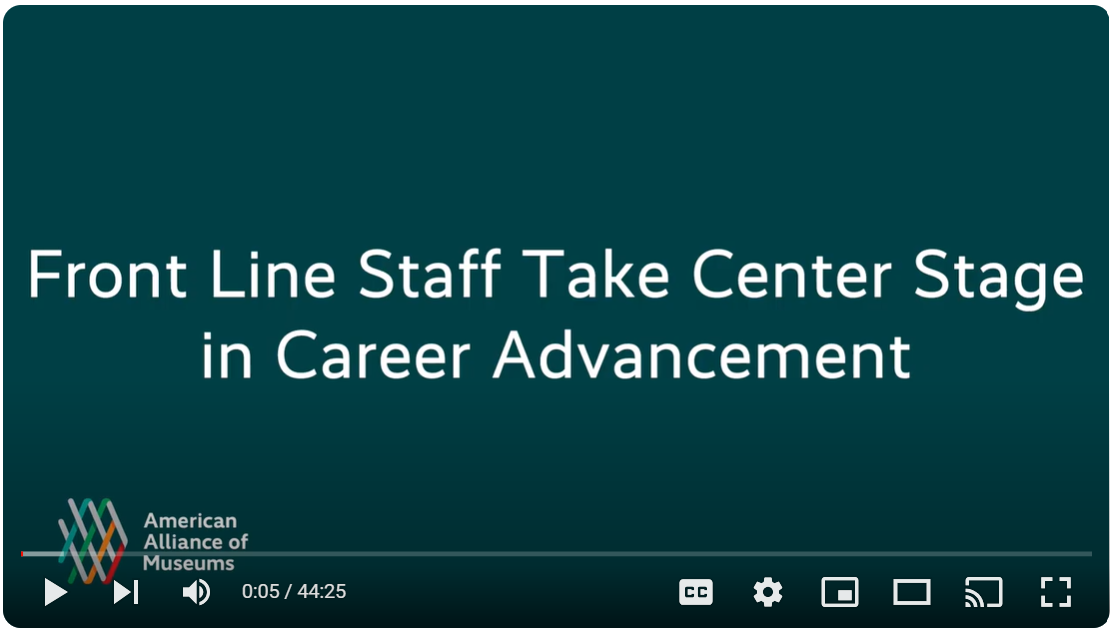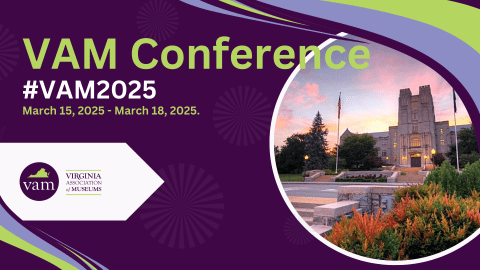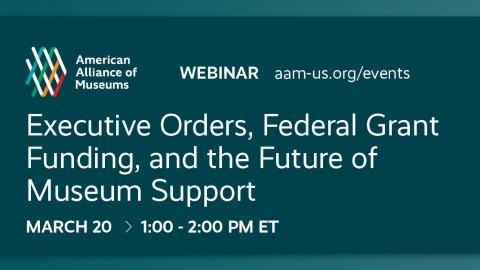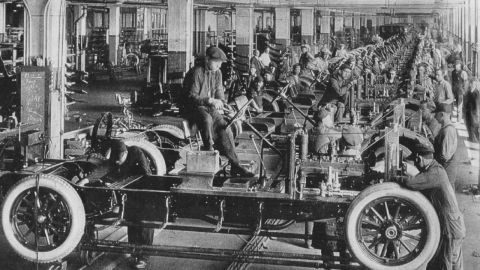
What’s more valuable than successfully hiring new talent? Retaining and advancing the skills of your existing, experienced, and well-trained staff. Learn from employees at the Barnes who have leveraged internally supported structures like career exposure internships and career ladders to contribute even more to the foundation while advancing their own growth.
Moderator: Erica Simonitis, Senior Director of Guest and Protection Services, The Barnes Foundation
Panelists:
- Nicole Chasteen, Advancement Coordinator, Barnes Foundation
- Kareem Jackson, Guest & Protection Services Supervisor, Barnes Foundation
- Scarlett McCahill, Guest & Protection Services Supervisor, Barnes Foundation
- Briana Taylor, Director of Human Resources, Barnes Foundation
Transcript
Erica Simonitis: Welcome, to the front-line staff take center stage in career advancement panel. We so thrilled to have you here. All right let’s get started. I’m Erica Simonitis, the Senior Director of guest and protection services at the Barnes Foundation in Philadelphia. I have the absolute privilege of leading the largest front line team in our organization. A little bit about my team. We are called guest and protection services, that’s going to be super important when you meet all of these wonderful staff that you see on stage a little later. We are a hybrid department. We do the work that traditionally lives in the separate security and visitor services department you see in a lot of our sister institutions in our industry. So that means in a single day, my staff are operating hundreds of cameras behind the scenes, they’re responding to harms, emergencies and evacuations, they are providing incredible world‑class customer service functions. They are also delivering public talks on our collection that are often the first educational touch point for all of our general admission guests. That’s a hybrid program we are really proud of.
My colleagues you see on stage with me are absolutely thrilled to have you join as we showcase front line staff who have achieved promotion, with us today and maybe you could give a little wave. Are Nicole Chasteen, our Advancement Coordinator. Kareem Jackson, guest and Protection Services Supervisor. Score let McCahill, Director of Human Resources, and Briana Taylor, guest and protection services, protection specialist. I told you knowing what our guest and protection services was would be important.
So today Nicole, Kareem and Briana will share with you their career stories just like we promised in the session title. Each story is a representation of their ambition to grow, their skill, and their talent as well as a reflection on their experience in a program at the Barnes we call pathways, you’ll hear all about their amazing career trajectories.
Pathways itself seeks to provide direct strategic skill development and encourage front line staff growth. To start us off, Scarlett is going to provide an overview of those program, goals and mechanics, as our Director of Human resources, Scarlett was the Co‑Chair of pathways working group. We Shepherded and implemented pathways. Scarlett is a program leader and an excellent one at that and along with front line department leaders, ensures its sustainability, quality and continued relevance for future growth in our organization. So Scarlett, I’ll turn it over to you.
Scarlett Mccahill: Thanks, Erica. Continued welcome everyone and thanks for your interest in the pathways program at the Barnes Foundation, I’m Scarlett McCahill, the Director of Human Resources here at the Barnes and my professional background is in education and workforce inclusion, so I bring those experiences and those values to my work in the pathways program.
So at the Barnes, we offer art education and appreciation to a broad range of visitors from across Philadelphia and around the world, and our staff are themselves constantly learning and we have created internal systems to support workplace learning, professional development, staff retention and high engagement. On a good day, we have a good time along the way as well.
And like Erica mentioned, we call the internal systems that develop, retain and promote our front line staff Pathways and so I’m going to introduce two branches of our Pathways program, the first, in all our front line departments, the biggest of which is GPS that Erica introduced, we have created career ladders. We have the most staff in generalist associate job roles and we had advancement opportunities based on learning additional skills that lead to promotion to specialist, and senior specialist job responsibilities.
So staff can specialize in skills to work in our gift shop, our call center, our box office sales, protection of people or campus, custodial facilities, duties, and art education, gallery introduction job duties.
So each of the staff you’ll hear from today has been promoted at least once and as they are sharing, I invite you to listen for the benefits that training, and promotion have had for them as individual employees and for the Barnes as an institution.
So moving on, the second branch of our Pathways program is offering career exposure through internal internships for front line staff. Over four years, we have offered more than 25 paid one day per week internships to front line colleagues. So the program structure matches front line staff through a competitive application process with colleagues in host departments who serve as mentors while the intern completes a project or learns job duties in a new area of museum operations, including some of the partner departments you see listed in the slide here. A valuable institutional by‑product we didn’t fully anticipate when designing our internal internships is that the mentors also report professional development benefits. Focused on sharpening their supervisory skills when they host an internship. But truly, cross‑training, silo busting, relationship building, between departments really make the internship program a rewarding community builder and, a great resume builder and incentive to retain front line staff and also to identify high potential staff for internal promotion.
So all together, the career ladders and internships contribute to a positive workplace culture, and one where we aspire to a culture of mutual respect and appreciation, which all lead toward a best quality guest experience through tighter operations, stronger interdepartmental teamwork and relationship building.
Erica Simonitis: Thank you, Scarlett, that’s a big program to boil down so clearly. I appreciate it. So with this understanding and grounding in Pathways, we are going to turn this over to the current and former front line staff you see on stage with us. They’re going to share their career stories and each story is centered around a theme, our teammates selected that reflects their experience. Nicole will reflect on the formal and informal networking opportunities she experienced how it supported her transition into a new department. Kareem discusses how leveraging his core job skills that he gained on the overnight team set him up to be a competitive candidate for a daytime supervisory position in GPS. Briana will bring us home and focus on the opportunities she’s had to learn and practice foundational professional skills, like giving clear, assertive directions to peers. I’m so thrilled to have these staff share their experiences with you and without further ado, Nicole, I’ll turn this over to you and change to your slide.
Nicole Chasteen: Great. Hey, everybody, my name is Nicole Chasteen, I was first hired at the Barnes in.
Erica Simonitis: Of 202 as a guest and protection services associate. Before working at the Barnes I held a lot of hospitality in front of house positions in a few restaurants as a worked to finish my BFA. Before starting, I was a curator at a small gallery in New York. I was always interested in working in a museum setting, but getting my foot in the door earlier, was difficult. When I started at the Barnes, I was hoping to gain experience in the museum world and figure out where to put my skill set to use. I’ve held several positions as a GPS associate, gallery specialist and senior specialist and now as the Advancement Coordinator. I completed two pathways prior to applying for my current role, the first was the gallery specialist position focused on providing gallery talks and presentations to our guests during public hours, while also being incredibly well versed in our security providers. The second was a pathway with our IT department that focused on ticket analytics and tracking attendance and event participation. I was working in the galleries every day and seeing the actual flow events, see the number side of the operation gave me better insight on how we function on a daily basis.
Before starting as the Advancement Coordinator, I completed a temporary job assignment with the advancement team. I didn’t have any prior experience in advancement, development or fundraising, so I found it really exciting to try something that at the time I felt was really outside of my comfort zone. As I got to know the role through actually living in it, I realized many of my front line focus skills such as my knowledge of the building, understanding of our mission and ability to accurate a welcoming and were as relevant with the advancement team as they were with guest and protection services. The experience I gained from a lot of these opportunities really gave me confidence to start to voice any aspirations to continue to grow at the Barnes. I also had a lot of confidence applying for this role when it became available because I already knew the team pretty well and was able to really network and make those connections.
I think my greatest takeaway from exploring all of these experiences was the importance of being able to network with so many people across the institution. The work we scheduled for guest and protection services is a lot different than other departments. I found getting more acquainted with roles and functions was difficult. The pathways program was really vital in presenting these networking opportunities to me, getting the peak behind the curtain helped me realize where the skill set was utilized. The connections I made with my mentor departments made it easier to transition from a front line focused role to a more administrative position because I was familiar with a lot of the people I would be continuing to work with. I still use a lot of those skills you gained through these opportunities which also helped reduce the training. The incredible support I got from the supervisors in my own department helped me to feel confident exploring other internal opportunities. I received a lot of support from my mentors and colleagues in the departments I spent time with, which only helped to amplify the confidence. Being able to grow with this program has been a career changing experience I think more people can and will absolutely benefit from. And with that, I’ll pass it over to Kareem.
Kareen Jackson: Hi. Him is Kareem, I was hired at the Barnes Foundation in February of 2022 with a clear goal of advancement in my security career. Prior to the Barnes, hey had a long history of security. I was looking for more of a challenge, I applied to the overnight senior protection specialist at the Barnes. My role on the overnight shift gave me directly transferable skills such‑the security procedures and overall layout of the building. And that made me a competitive hire for the supervisor role I now hold. While working overnight it allowed me the opportunity to learn the complicated system at a much slower pace which saved the department time when it came to training me for my supervisor role. My knowledge of both the console and the building response times to any issues quicker because I was already familiar with the layout of the Barnes, if there was an alarm on the west Harris, I knew you exactly where to go, water sensor in the north mechanic room, I know exactly where to look, overnight patrolling habits were directly transferable. As I was able to expand on them in my new role. While working overnight I would do routine checks of the kitchen, sometimes I would find an oven still on. Sometimes in the same ovens, there’s food left in them. Since my promotion, I can say I’ve successfully managed to coach my team to perform those same checks hours earlier. Which is a small personal feat I am quite proud of. Overall, I was happy with my overnight time because I was able to use those same core job functions as a foundation for my current supervisor role while being able to add new skills to push myself even further.
Thank you for your time, I’ll pass it over to Briana.
Briana Taylor: Hi, everybody. Everyone. I’m Briana Taylor, I was hired as a GPS associate in May of 2022. I go put the job through a partnership between the Barnes and my college completion program as a GPS associate, my responsibilities included greeting guests, reinforcing the policies of the institution to the guest and answering any questions guests had to the best of my ability.
I got promoted to a security specialist in June of 2023. I was a bit nervous about applying for the position since I had no prior experience and that this was a bit out of my comfort zone. I never worked back of the house, supervisors and coworkers were quite supportive in reassuring me I was making the right decision. Since being promoted, I’ve learned difficult skill corsets, one of which being assertive with coworkers while still being mindful and cam passion and sensitivity. One of the more prominent roles of a security specialist is to be a gallery monitor. I’m responsible for informing my coworkers, GPS associates, of what policies are being violated by guests and giving them clear directions of where to go and who to brief. Since I’ve in their shoes before, I know how it is and I know how they would like to be communicated with. Just speaking to someone in a certain manner can have an impact, not just on the individual but on the overall environment. As a result, I’ve received positive feedback from coworkers as well as my supervisors, and I’ve gained not only experience, but also more confidence in myself. Thank you for listening and I will now pass it back to Erica.
Erica Simonitis: Thank you so much. I’m going off my talking point for a second to say, Scarlett and I have had such a unique privilege to be a part of all three of your career trajectories, and it’s not just been a privilege to see you do it in realtime, but to see you get on stage and talk about your own accomplishments, it is just like super heartwarming and why Scarlett and I choose the work we choose to do, you but Scarlett, I’m talking on behalf of you, I think we work well enough together to know. Go ahead.
Scarlett Mccahill: I’m really into all these emojis flashing all around.
Erica Simonitis: Thanks to all of you for sharing the career stories.
So for our audience members, when preparing for this panel, we thought, okay, they’re going to hear all this information, and our audience might be wondering, okay, I do a version of this, or I want to do this and if I want to do it or improve what I’m doing or want to keep working at it, what do I need to know to make sure that I am creating and maintaining front line staff center programs in my organization, that resonate with that audience? And we have the perfect audience in terms of our panelists to answer that question from, the front line staff. So I’m going to ask all of you the same question and hopefully you’ll be able to provide some great dynamic answers. So the question I’ll ask you to answer if one of our audience members approached you in the virtual hallway and asked, I’m starting my own front line staff program, I have my own program, and it’s new or I have my own program, I’m doing it for three years, what are the must haves or must‑dos for it to be, stay or become even more meaningful for front line staff. Nicole, I’ll start with you.
Nicole Chasteen: I think one of the best things for me was being included in the conversation. There were a lot of focus we did where front line staff was brought in to voice what they wanted to do, where they wanted to intern, how could this work in their schedules and how impactful would it be for their jobs, I think being included in that conversation and then being through the result of being able to participate in that program was really important for me and made me and my coworkers really want to continue to voice where we kind of want to go, what kind of pathways we wanted and so being part of the conversation was a big, big success in my eyes for this program.
Erica Simonitis: Thanks, Nicole. Kareem, what resonates for you.
Kareen Jackson: For me, it’s having encouraging and supportive mentors. I’ve said it before, if it wasn’t for Erica coming to me 6:30 in the morning, I probably wouldn’t have applied for this position.
Erica Simonitis: I don’t know, you’re a talented man unto yourself. It was a fun conversation, and why was I here that early. No one will ever know, but I was.
Briana, what resonates for you as a must do or must have for those who are into this work.
Briana Taylor: Yes, I feel like one of the most important things to keep in mind is to hire people who show potential and are willing to career, prior to this current position, I had no experience, as I mentioned before, and it was really ‑‑ it was really important to show the supervisors that I was optimistic and I was willing to put in that work and ‑‑ yeah, definitely people that show potential.
Erica Simonitis: Thanks so much. Scarlett, I’ll turn to you for ‑‑ as a program lead, what are those tactical and conceptual things that are your must‑dos and must haves.
Scarlett Mccahill: I think in a development program like ours, hopefully folks are hearing how many benefits there are to individual employees, and those are really at the center of our decision‑making.
We seek to facilitate this program to develop staff, as a value and priority of our institution in and of itself, and I think some of the conditions that have allowed to us do that successfully start with some of the inception story of creating this program. It really was at the board level and executive level at the beginning where we had strong support to design and implement a program for employee development. This has been a part of the Barnes in some form or fashion for the majority of our entire hundred‑year institutional existence. We wanted to bring that into today, to have meaningful workplace learning and have some of that be about art and art history and expand that into our own personal and professional development. Having that strong support at the executive and board level helped us get going and helped us sustain this program. Additionally, we try to be clear eyed to recognize the workplace culture at the Barnes is not perfect. We have many areas where we want to continue to evolve and invest always, but this has been such a positive aspect of our workplace culture. We reflect often at the close of the internship cycle each quarter that a program like this one can’t fix a negative culture, but it can contribute to a positive culture.
So better coworker experiences and closer relationships, the professional development of participating interns, or staff preparing for or receiving promotion, collaborating mentors in the case of internships, all that cross‑training and all that relationship building, and shared knowledge leads to better decision‑making on behalf of our visitors. There is also a cost savings in terms of employee training or retraining that’s tough for us to quantify with much confidence, but we see through exit interviews from all of our interns and through internal promotions and external ‑‑ what we call beneficial terminations when colleagues leave the Barnes for a mission aligned promotion outside the institution. We are sad to see them go but consider that another positive aspect. So I think some of those must‑haves really are ‑‑ I’m trying to give you evidence that show the broad buy‑in and shared responsibility that happens across all departments in the institution and all leadership levels in the institution as well, where we are all deeply bought in on continuing to provide this kind of investment. I think I’ll leave it at that.
Erica Simonitis: Thanks so much, Scarlett.
Before we turn it over for our audience to know that one of the Barnes core values among our staff is a learning culture. When we put together this session we said we need lots of time for Q&A, we have to have ripe discussions with people about what they’re thinking top of mind, what they’re working on. I see two questions in the Q&A thread so far, and I’ll ask if you’re in the audience still, please light up the Q&A. The rest of this time is dedicated to that dialogue, that be me reading your question, if you don’t have mic access or not.
Before we turn it over to the couple questions I see, anyone on the panel, did you have any final thoughts to share about the program, about your experience, before we get deep into the Q&A.
Scarlett Mccahill: Just to round out this love fest a little bit more, everybody got emojis so far except Erica, we ‑‑ in our presentation prep, I think each of us really leaned on Erica’s initiative, confidence in all of us, and deep care for our mission to make sure that we are sharing our learnings with the sector. But also platforming colleagues, I won’t say who is who, who are just at the beginning of getting some good conference presentation skills under their belts.
So shoutout and thank you to you, Erica and all the emojis that go with it.
Erica Simonitis: Thanks, Scarlett, I appreciate it. I’m so proud of this program and I’m proud of our organization for committing to it. It’s not an easy thing.
I think the best way to do this, I’ll read the question and then Scarlett, the first couple of questions I think are between you and I, Scarlett, just because they are tactical questions, Kareem, Briana and Nicole, feel free to jump in.
For Jody, how many staff does the GPS team have at the Barnes? We round out to about 50 when we include managers and supervisors. However, my team is not the only team eligible to participate in Pathways. Scarlett, do you know about how many other of our sister department colleagues are eligible.
Scarlett Mccahill: Good question, Jody. Broader context, 175 full‑time and part‑time employees, about 40 on call employees, about 40 active volunteer docents, and then Erica is describing to ‑‑ 40 in GPS.
Erica Simonitis: About 50.
Scarlett Mccahill: And then in our shop, our call center, in our box office, those are all smaller departments. So all told, about 20 more folks. So because there’s a link in the question, Andrea asked a question, I’m skipping over Elizabeth for a second and just to finish the thought. Andrea asked in the chat can anyone participate. The eligibility to participate in an internship is a minimum of four months of service, part‑time or full‑time service, as well as a no disciplinary issues in the past six months, and typically, we have ‑‑ we offer three to four internships per quarter, and we offer those during Q1, 2 and 3 of the calendar year. October, November, December, this time of year, we are awfully busy, visitor facing and don’t offer internships. Typically, we have between 8 and 20 applicants for those three or four positions per quarter.
So Andrea, Jody, I hope that gives you a sense of scale of what we are working on.
Erica Simonitis: Thanks, Scarlett.
So here’s a heavy hitting question, but a good one from Elizabeth Edwards. You know, I think Scarlett mentioned this, but let’s deep dive a little bit if we can. How do you get leadership on board with wanting to provide professional development for front line staff when that previously has not been a priority? You go first.
Scarlett Mccahill: It’s a tough question. Lots of folks have asked across the sector, my suggestion would be really to look to your existing strengths. What are your strengths in your institution, what are your values in your institution? We knew at the Barnes, our values are learning culture, and learning for the sake of learning is pretty much our business. That’s what we offer to the public, and we enjoy offering to one another, right, oftentimes we are our first ‑‑ our first draft learners to one another behind the scenes, and that’s a real ‑‑ that’s a real joy in our work.
So that leadership, what are our current state values, and how can we draw a logical line between what we care about or what we aspire to do and a tactic that can help support that or bring professional development as part of that. Sometimes that might be making a really clear case for a return on financial investments and asking for a pilot initial small program or time bound program sometimes that might be activating a champion at the executive or trustee level. Looking for someone who has had success in their careers. We have a number of trustees who have arts education backgrounds themselves, but we also have champions from the corporate sector who have seen how in for profit environments deep investments in workplace learning have Hemmed profit margins. Asking yourself what’s the case to be made for that investment and then making a big ask, or small ask or time bound ask could be different strategies to get something up and running, and then whatever it is that is authentic to your institutions approach to professional development, I really encourage coalition building and collaboration. I think Nicole mentioned in her reflection that it really was an interdepartmental sustained commitment in planning the program and some of those same colleagues who have returned to their core job functions and don’t have ongoing program administration responsibilities continue now from their own locus of control and continue now three or four years out to be some of the best internal champions for the program. Hey, remember we said this is what was really important to us, are we doing that with this next evolution, those kinds of call‑ins continue to really help keep us grounded in the goals of investing in our colleagues.
Would anyone else add or take that answer in a different direction, different strategy to persuade your board or executives to invest in professional development.
Erica Simonitis: I think the most compelling arguments we made along the way, Scarlett, were in the mutual benefits of the program, not only is this an important audience in the museum field, that is underrepresented in terms of professional development opportunities, right, I’m so proud that we are bringing front line staff to conferences, virtual and in person, but we have also seen in our team their rapid skill gain and not only are they contributing to the departments where they do internships in, like getting things done, that department has wanted to do, but coming back to their home departments, being champions for, you know, institutional values and institutional priorities and being able to help newer colleagues understand how the processes of the organization works, it creates much less, for me, for colleagues who are really succeeding and erodes the top‑down culture a little bit because now there’s buy‑in across everything.
Nicole, you’re a great example of this, if you want to speak to it, please do. After you did your ticketing analytics internship, you came back to GPS and said I understand why we have access control. I understand why we sell tickets at certain times of the day. And you became an internal champion to your staff who maybe could feel a little bit down about ticketing sometimes or feel great about ticketing sometimes and give them the context. That context, not coming from your supervisor is a huge win in terms of relationship building and buy‑in.
Nicole, what are your thoughts around that.
Nicole Chasteen: Yeah, I found that one of the great things was bridging the gap between GPS and a lot of these other departments that we worked closely with. Communication wasn’t always streamlined and so being able to have one person in the middle of that, I became the IT spokesperson for GPS. So if anything was going wrong with technology, if somebody didn’t understand why we tracked tickets the way we did, I could swoop in and say we have information we may not have had in the beginning, that was really helpful because then a lot of my colleagues were more understanding of some of our processes and then we were kind of able to do our collective job of tracking that kind of thing a lot easier because we knew that it was something that was super important and we had the why of it all. Really interesting to be able to bridge that gap and continue that conversation and put another digital asset to the collection and things like that. It was really a great experience for me too. I really enjoyed it.
Scarlett Mccahill: Nicole, there’s a corollary, even with your department, hello, there are things we see in third shift that day shift people are not aware of. Right? And I loved the way that you were describing getting really solid technical skills that then, you’re light, nope, I understand all this technology and these procedures inside and out, so that then when it’s time to use them, faster, more varied, more kind of on the move, like you have a really strong foundation and you’re bringing that now to other people who are still developing those skills daytime. That’s similar to what Nicole is describing in my eyes.
So overall, Kareem, to you, would you say ‑‑ well, I’m going to have a follow up question for you afterwards, I won’t put you on the spot. I think it’s a real strength that you brought through your experience.
Erica Simonitis: I’ll combine a couple of questions, I see in the chat, so everybody feels like that got a little piece of us. I have a question from Katherine, and I have a question ‑‑ just give me a moment from Shaena that’s very similar, which is any suggestions for how to do a program like this at a smaller organization with a much smaller staff, asking the question of covering job duties for employees which is certainly a challenge when you think of these programs, and Katherine asks something similar, which is what operational support did you need to have this in place and takes it to a specific place for Scarlett, which is do you have a dedicated staff or person managing the program. I’ll take part one.
Scarlett Mccahill: Erica loves a detailed schedule spreadsheet, Briana, do you think that’s fair?
Erica Simonitis: Need to have it. Yes, to these two questions, a core component to the success of the program is making sure that when Briana leaves for her internship, there’s someone who can sit in her chair while she’s gone that one day a week. I think that has to be something that you include in the overall budget for your program. It doesn’t necessarily mean that you’re going to have to expand your staff head count. In fact, that’s something our organization said is a limitation, we have to figure out how to operationally support this without expanding head count. I think what this really comes down to, and this is what I think the great thing about pathways is, and we talk about very often, it’s scalable. If we are feeling tight one year, and we are feeling tight one quarter, and we feel like we need to scale down, we can make that decision as a collective Pathways group and say it’s going to be a little stressful to cover these operations or send people into overtime, what are your options? And I think that goes across any institution. We happened to do four internships every quarter because that’s what our operation dictated was possible with some schedule maneuvering, for your organization, that might mean one per quarter or one per month, one every other month. I don’t think that there is a right or wrong amount of offering as much as it’s important that the ‑‑ they are offered consistently, and the process is equitable. To me, those are much more important than necessarily the volume with which exists in your program, your volume, your scale can correlate to your institution. So just to sum up, scale it to what makes sense to you and use flexible hours that front line staff hold to your advantage and do some fancy scheduling maneuvers.
And let that schedule dictate what you’re able to offer and Scarlett, I’ll let you talk about administration.
Scarlett Mccahill: Initially, we had planning group of about a dozen colleagues, a quarter of them were program eligible staff. So staff who would be eligible for promotions and internships, and they gave a lot of voice as well as direct supervisors, in positions like Kareem is in now, who report to Erica, and today the HR department, myself and an HR business partner spend probably on weeks that we are opening tore closing internships, which happen in three cycles in the year, we spend ten hours in that week or two on Pathways implementation.
The rest of the year, we have created really clear, flexible, Evergreen templates for everything. I would love to share those with you in your institution. We are kind of open source mind set in that way.
We have tried to really make sure that we are streamlining all the administrative overhead and making a clear and predictable process not just for applicants but to reduce administrative burden on the HR department who is now facilitating a lot of these activities but also very importantly for the partner mentors.
So if I’m looking on this slide, our library and archives is a I very popular internal internship. I need to make sure when we survey our front line colleagues, which we do at least once a year to ask where would you like internships next, I want there to be a partner on the other end, I take those responses to department heads and say, did you know that our colleagues put you in the top three areas of interest for internship next year, could you offer two internships, that’s how our process gets started on an annual basis. I need to make it easy for the mentors to say yes. So that means protecting them from a whole lot of red tape or bureaucracy or procedures that they are unfamiliar with. We have HR, payroll, time keeping procedures that are custom, so we are not showing on our payroll books that Erica’s department, or any front line departments have inflated labor costs. We have a labor cost segregated for Pathways payroll hours so we can see the true cost in hours worked, in internships, separate from our front line operations.
But we created all of those tools initially, and we do an after action review each quarter on the internship front as we have more promotions, which to give you some perspective, in 2022, in a staff of about 150 to 170, fluctuating, in that range, four front line staff were promoted to other departments, three front line staff were promoted within the career ladders, like Briana and Kareem described, two front line staff received promotions within the Barnes after completing an internship, and four front line staff left the Barnes after completing an internship for a promotion in a mission aligned organization, in this case they were all peer institutions across Philadelphia.
So the point is, we do see some movement, and we think that that’s a good thing. We do need to keep us handle on that, so we don’t destabilize core responsibilities and drive our front line colleagues up a wall because we have too many people moving around too much.
In our experience, that’s been an art, not a science, we don’t have measures or quota around that. That gives you some sense for the backbone administration that’s happening and the kinds of activities that have to become recurring activities over time in our experience.
Erica Simonitis: I just got the nod from Michelle that, unfortunately, our session time has come to an end.
I am going to drop our contact information, Scarlett, do you want your e‑mail in there or my e‑mail in there, is there a generic e‑mail. I would love for you to please reach out to us and ask these questions. If I could stay for more time, I would be happy to stay for more time, but please send these to Scarlett and me, Kareem, you got a shoutout question in the Q&A, I want to make sure you see that and can connect with that person and answer it.
So thank you so, so much for joining us today. Your questions have been insightful and wonderful. Scarlett and I are always over the moon happy to talk about this program with others. So please do not ‑‑ do not hesitate to reach out to us through the e‑mails we will provide in the chat. Thank you so much to the Barnes panelists, I’m appreciative of the work you do every day and specially today and I’ll leave it to you to say your goodbyes to everyone.








